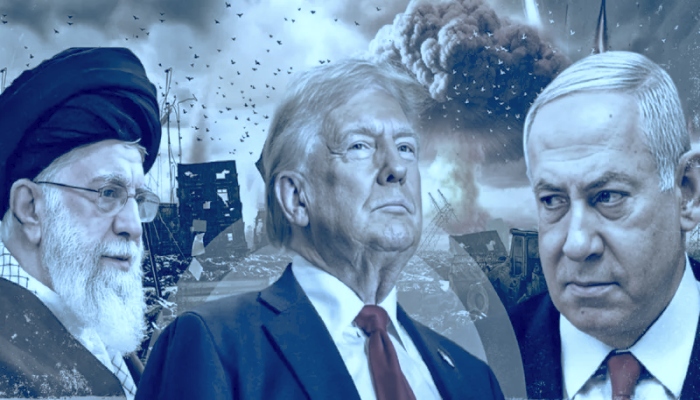Tehran/Washington/Jerusalem – The Middle East is once again teetering on the edge of a major war, with escalating tensions between Iran and Israel now drawing the United States deeper into the fray. What began as a dispute over Iran’s nuclear ambitions has spiraled into a serious geopolitical crisis, with fiery rhetoric flying between Tehran and Washington.
In a scathing response to recent statements made by U.S. President Donald Trump, Iran’s Supreme Leader Ayatollah Ali Khamenei warned that any American military intervention would be met with “irreparable damage.” Khamenei, in an official statement, firmly rejected the notion of surrender, saying, “Those who threaten Iran clearly do not understand our history or our people. We are not a nation that bows down.”
This statement comes as a direct rebuke to Trump’s provocative post on his Truth Social platform, where he claimed the U.S. knew the exact whereabouts of Iran’s “so-called Supreme Leader” and that he would be an “easy target”—though, Trump added, “we’re not going to take him out, not yet.” The former president also warned that attacks on U.S. troops or civilians would not be tolerated, suggesting that American patience was “wearing thin.”
Escalation Triggered by Israeli Airstrikes
The current flare-up traces back to June 13, when Israel launched targeted strikes on facilities allegedly linked to Iran’s nuclear program. The Israeli government claimed the operation was a necessary step to prevent Iran from acquiring nuclear weapons capabilities. The attack prompted swift retaliatory threats from Tehran, pushing both nations into a direct and dangerous confrontation.
As cross-border hostilities continue, military analysts warn that a full-scale regional war could erupt if diplomacy fails. The implications for global energy markets, trade stability, and international security are dire. Experts emphasize that any escalation could severely disrupt oil supply chains, especially if Iran targets the Strait of Hormuz, a critical maritime chokepoint for global crude oil transport.
The Triangle of Tension: U.S., Israel, and Iran
The geopolitical triangle forming between the U.S., Israel, and Iran is becoming a pressing concern for global peace advocates. With Trump taking an aggressive stance and Iran defiantly resisting, the possibility of military action is no longer far-fetched.

Khamenei’s refusal to compromise on Iran’s sovereignty, paired with Trump’s explicit threats, has only heightened fears of a major conflict. The global community is increasingly uneasy, with the United Nations and EU urging all parties to exercise restraint and return to dialogue.
Meanwhile, regional players such as Saudi Arabia, the UAE, and Turkey are closely monitoring the situation, aware that any prolonged conflict could spill over into neighboring territories, destabilize markets, and fuel extremist violence.
What Lies Ahead?
With both Iran and Israel showing no signs of backing down and the U.S. actively engaged in the discourse, the coming days could be critical. The rhetoric is turning sharper, military assets are being mobilized, and the world is watching anxiously.
The Middle East, long a crucible of global conflict, now faces one of its most dangerous chapters in recent memory. Whether it leads to diplomacy or destruction depends on the actions of a few powerful leaders—and the choices they make in the days ahead.









